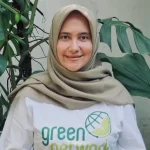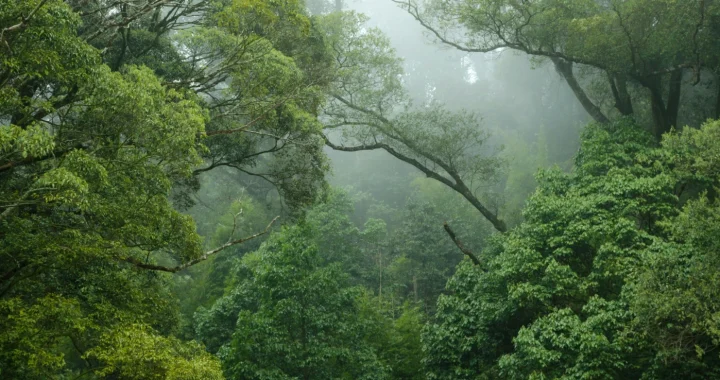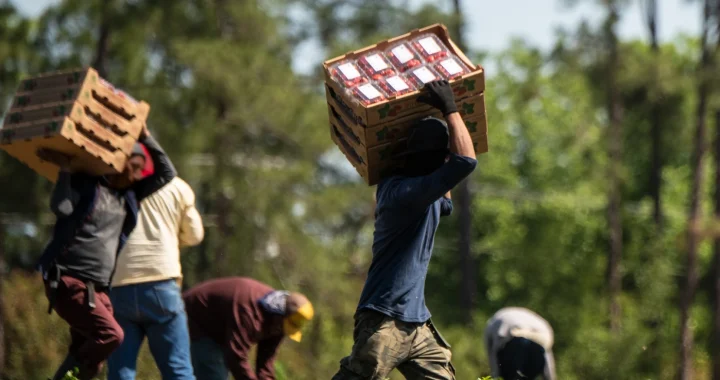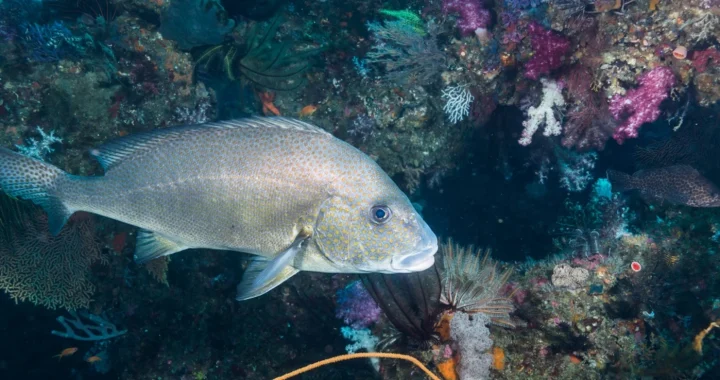Moving Purpose into Action by Creating Shared Value

Illustration by Inez Kriya
Green Network Asia is entirely new in existence. However, the story of how I started this “purpose-driven” company might actually have stretched for years. I would like to give special credits to my friends, professors, and mentors, especially Prof. DR. Laode M. Kamaluddin and DR. Ahmad Mujib El-Shirazy, who helped nurture my intellectual curiosity back at my undergraduate double-degree program at Universitas Islam Sultan Agung, Indonesia. With the many building blocks that amounted to the idea of building Green Network asia, I consider my turning point to be the moment I received a Letter of Acceptance (LoA) from the Lee Kuan Yew School of Public Policy (LKYSPP) at the National University of Singapore (NUS), to pursue my education in Master of Public Policy (MPP) 2015-2017.
How It All Started
I didn’t have available funding to start my MPP program when I got the LoA in 2015. I shared my limitations with Mr. Nick Soriano, who was the Director of Admissions and Financial Aid at that time. He reviewed my case along with other aspirants, and I was fortunate to be chosen to seek the OCBC scholarship. The OCBC bank was one of the school’s partners in its endowment funds. It provided fully-funded scholarships for selected students from different countries in Asia to study in Singapore. He then recommended me to the bank selection committee for final interview selection. I remember he told me that “we cannot intervene in the result of your interview; it is 100% the bank’s decision.”
Long story short, I was finally interviewed by a panel of six selection committee members from the OCBC Bank. By the end of the interview, they allowed me to ask a question or make a statement should I have any. I made a statement and said, “I would be very grateful if I could get the scholarship. Not only that I’ll be able to start my study this year, but the scholarship will also break the ceilings as I’ll be the first person from my village who could pursue a master’s degree program, and even abroad! If I don’t get the scholarship, that’s fine, it won’t prevent me from pursuing my dream. I’ll always find a way.”
Corporate Social Responsibility (CSR)
Thankfully, I passed the interview and ended up getting the fully-funded scholarship – OCBC Master International in Public Policy, thanks to the CSR of the OCBC Bank. And, thanks to the LKYSPP for the strategic collaboration with its partners, at least 80% of the students were studying with fully-funded scholarships and grants. That event was the first experience in my life where I benefited from a CSR firsthand. The two-year MPP program turned out to be a great leap in my life, a life-changing experience.
I learned from that experience that businesses with purpose like the OCBC Bank, whose founder was very concerned about education, could create a significant impact on someone’s life and society. By channelling their CSR into providing fully-funded scholarships, businesses like OCBC Bank have contributed to creating the so-called “positive externalities” for the world by generating scholars, professionals, activists, and entrepreneurs who are fully equipped with the knowledge and skills needed to be leaders in their fields.
A Passion to Support Sustainable Development
Like “power”, I have always believed that with “privilege” comes greater responsibility to give back to society. Sparked by that belief, I kept thinking about creating a social impact with the ‘privilege’ that I gained from my scholarship. It was a “painful” journey within myself to discover how I would serve society with the knowledge, skills, and expertise I gained from my education. Through some exposure, I ended up falling in love with sustainable development. I became passionate about topics related to the field and was quite obsessed with supporting it, including the global agenda of Sustainable Development Goals.
I did independent and extensive research to learn about sustainable development that allowed me to see cross-discipline connections and gave me additional skills to be a “generalist”. I did voluntary advocacy work for teachers, helping them be aware of the issues surrounding the SDGs and how they could contribute at personal and organizational levels. These activities happened for some time until I came up with a need to establish a platform that would channel that passion and create strategic multi-stakeholder collaborations. I hope it would help accelerate the impact of purpose compared to my individual and disorganized activism. Overall, I wanted to do something bigger than myself.
A Dilemma: Non-Profit or Business?
Activism has always been in my blood, and I always feel like I was born to serve society; it makes my heart fulfilled. A dilemma came up about whether I would establish Green Network Asia as a non-profit organization or a business. Upon such a long battle in my heart and mind, and based on my observations, I found the need to be independent and self-sustained in my missions. I needed to empower others without struggling myself due to my own lack of resources. I needed to be capable of helping the poor, the vulnerable, and the marginalized without relying 100% on grants and donations that were increasingly challenging to access, even by non-profits. I wanted to make money that was halal in my belief so I could sleep well at night. In general, I was curious to test the idea of a new model of capitalism in which people, the planet, and profit go hand in hand.
While I was thinking, I encountered an Instagram post by Ruben Hattari, which influenced my decision significantly. What he said in that post, “do what you love and learn to make money out of it” was an “AHA” moment to me. I was then convinced about what type of organization I would establish Green Network Asia as. I decided to create a business instead of a non-profit organization. I set the bar that the business must be purpose-driven, in which the purpose will always be at the heart of our overall strategy, operations, and people.
Creating Shared Value (CSV)
I first learned about the concept of CSV from a one-semester elective module offered by the LKYSPP in the last semester of my MPP program. The module was Foreign Policy of Global Businesses. It was facilitated by my professor, the late DR. Roger Hayes, whom I learned a great deal from about the role businesses could play to address the world’s wicked problems, along with governments and civil society. Two Harvard Business School professors first introduced shared value, Michael E. Porter and Mark R. Kramer, in their 2011 seminal Harvard Business Review article, Creating Shared Value.
That’s what we want to practice at Green Network Asia; to create an ecosystem of shared value for sustainable development.
While CSR has made a social impact to some extent as I personally have benefited from, businesses need to pursue the next level of creating social impact beyond compliance, charity, and philanthropy. This can be done by transforming their thinking to be purpose-driven and moving that purpose into action by creating shared value in their respective business areas or areas that they find very important.
The narrow conception of capitalism, as Professors Michael E. Porter and Mark R. Kramer put it, has created massive exploitation and destruction for short-term profit maximization at the expense of people and the planet. As one humanity, we all are facing unprecedented challenges of the climate crisis, COVID-19 pandemic, biodiversity loss, natural resources depletion, and inequalities, to name a few that are catastrophic to all of us on Earth. Creating shared value has offered tremendous opportunities for businesses to play an active role as “agents of social change” by solving problems in society through solutions embedded at the core of their businesses that are economically profitable and socially valuable.
Green Network Asia has reached this level of awareness. We want to help promote the notion that businesses must be a force for good altogether with governments and civil society. That’s why businesses need to transform their policies and practices. The world has witnessed that government and civil society initiatives alone could not tackle the wicked problems that threaten humanity. I believe that integrating businesses into our collective efforts is the only solution to fill the gap. Companies have undeniably been a big part of the problem. It is time they step up to play a role. We want to prove that notion and start from ourselves while advocating for others with our knowledge, skills, and expertise.
Editor: Agung Taufiqurrakhman and Nazalea Kusuma

Co-create positive impact for people and the planet.
Amidst today’s increasingly complex global challenges, equipping yourself, team, and communities with interdisciplinary and cross-sectoral insights on sustainability-related issues and sustainable development is no longer optional — it is a strategic necessity to stay ahead and stay relevant.

Marlis Afridah
Marlis is the Founder & CEO of Green Network Asia. She holds a master's degree in Public Policy from the Lee Kuan Yew School of Public Policy at the National University of Singapore. She is an interdisciplinary public policy researcher and public affairs practitioner with an integrated focus on sustainability and sustainable development. She brings over a decade of cross-sector professional experience supporting governments, businesses, and civil society across the Asia Pacific and beyond, mainly on policy research and advocacy, government relations, and stakeholder engagement.


 Global Shifts in Forest Dynamics and Their Impact on Biodiversity and Resilience
Global Shifts in Forest Dynamics and Their Impact on Biodiversity and Resilience  Trends and Gaps for Women in STEM
Trends and Gaps for Women in STEM  Addressing the Harsh Reality of Temporary Labor Migration Programs
Addressing the Harsh Reality of Temporary Labor Migration Programs  Mapping Conservation Needs for Sharks and Rays Globally
Mapping Conservation Needs for Sharks and Rays Globally  Hamdan bin Zayed Initiative: Abu Dhabi’s Path to Achieve the World’s Richest Seas
Hamdan bin Zayed Initiative: Abu Dhabi’s Path to Achieve the World’s Richest Seas  How Human Behaviour Becomes the Real Engine of Sustainability Action
How Human Behaviour Becomes the Real Engine of Sustainability Action